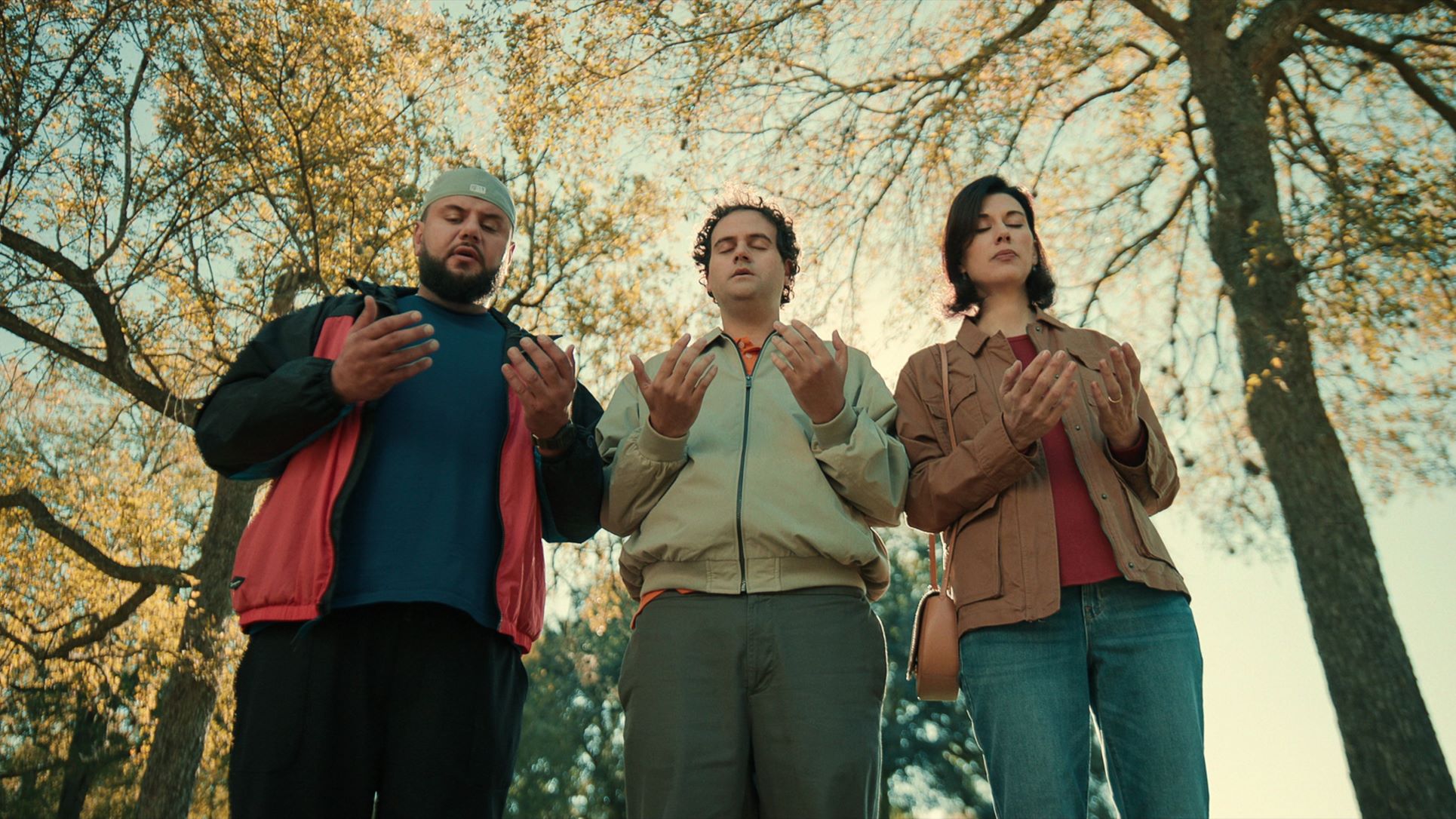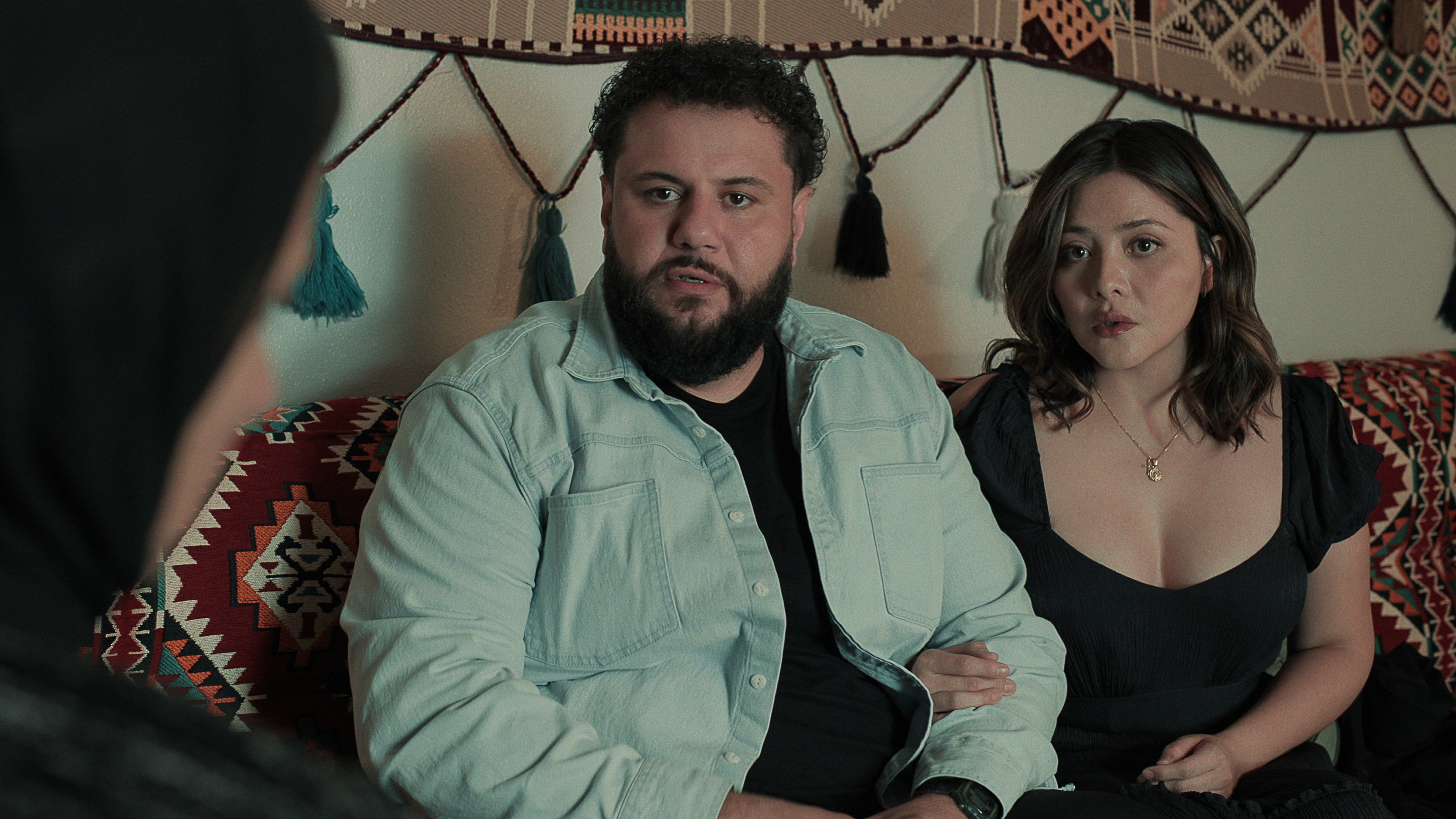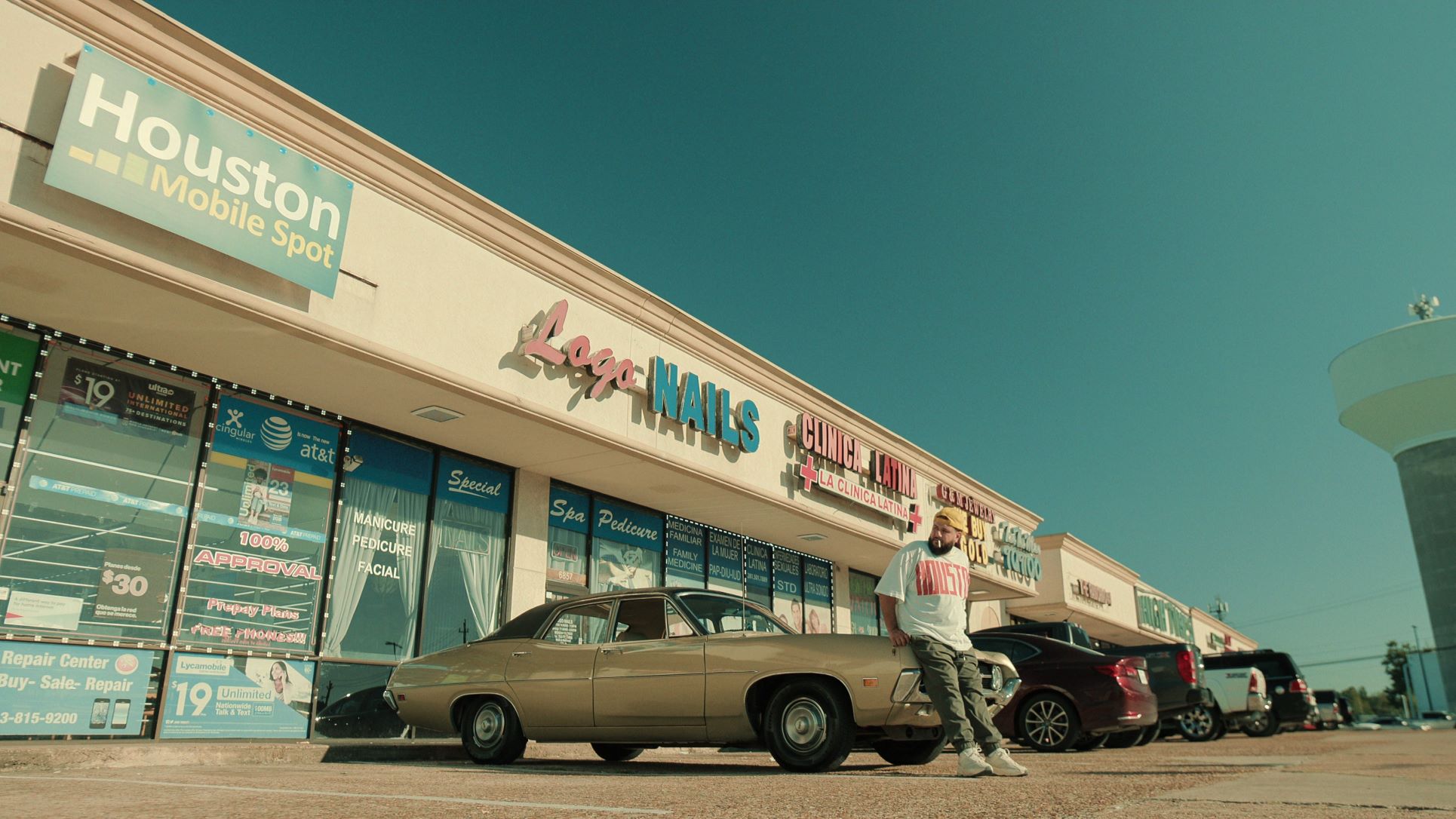Why Netflix's Mo is Hollywood’s most authentic Arab-American portrait on TV

Editor’s Note: This review of the Netflix series Mo contains spoilers
In the finale of Mo, the eponymous Palestinian refugee (Mohammed Amer) gets stranded in Mexico. As an American, he is scolded by a Mexican coyote for closing borders and denying poor immigrants the more secure life they have been dreaming of.
The irony is that Mo is not technically American; he does not have a passport or a Green Card. He has never voted on the immigration policies he’s symbolically held responsible for.
Mo is a true surprise: a delightful, astutely observed Arabic-flavored American comedy
In the eyes of foreigners, Mo is American, but he has no legal claim to being American; he wants to go home to a place that has not recognised him as one of its own.
The fleeting moment captures the essence of Mo, the new Netflix series taking the Arab-American community and Arab world at large by storm by becoming the first Palestinian-American show on a major American network.
Stay informed with MEE's newsletters
Sign up to get the latest alerts, insights and analysis, starting with Turkey Unpacked
For an industry traditionally sympathetic to Israel, the prospect of a show of Mo’s ilk - where a Palestinian character voices indignance towards the Israeli annexation of Arab lands - would have seemed impossible just a few years ago.
But this is a new age of global television, in which a different Hollywood has different values and different market considerations.
Introducing the Palestinian narrative
In their recent book Hollywood and Israel: A History, historians Tony Shaw and Giora Goodman detail how pro-Israel sentiment in Hollywood has calmed in recent years with the exposure of flaws in Israel’s democracy and its aggression towards a largely defenceless Palestinian people - all long ignored by Tinseltown.
With the twinned popularity of TV streaming and multi-episode series globally, Hollywood has seen an opportunity to tap up new audiences, with minority groups and younger demographics widening the breadth of viewership for its products.
African-Americans and other minorities were among the first that Hollywood struck gold with, and that model is now being replicated with other non-white groups.
The widespread push for diversity certainly helped popularise non-white stories, but these shows would not have been greenlit if they did not have potential for drawing sizeable audiences. Hollywood is, after all, a consumerist business.
With a population estimated at 3.7 million, and a global Arab audience for streaming services like Netflix, it was only a matter of time before the turn of Arab Americans would come.
A24, the cult studio behind the much-vaunted Moonlight, scored a hit with Ramy, America’s very first series with an Arab-American family. That show has been a critical darling, earning a Golden Globe for best actor in 2020 and nabbing multiple Emmy nominations.
Mo would have certainly not seen the light of day had Ramy not been a success (The show’s lead Ramy Youssef is the co-creator and producer of Mo).
While Ramy placed Muslim mores at the fore of popular culture, Mo went the extra mile and introduced a Palestinian perspective to mainstream American audiences for the first time.
Amer handles the weight of being another first with laudable aplomb and pathos, transposing the unique Palestinian pains with a carefully calculated mix of anger and dignity – a balance that is arguably the show’s strongest asset.
It also helps that Amer has a natural screen presence with brilliant comedic timing. Its political and cultural importance aside, Mo is really funny.
Real influences
Though not autobiographical, the fictional Mo character shares some details with his creator’s life.
Both are Palestinian refugees born and raised in Kuwait to a housewife mother and a telecom engineer father who died when he was 14. Both fled Kuwait during the Gulf War for the Texan city of Houston. Both were long-time asylum seekers, and both had Mexican-American partners. But that’s where the comparison stops.
Unlike the real Amer, a successful stand-up comedian who received his American citizenship in 2009, Mo is an undocumented asylum seeker and hustler without a passport. That’s the main tragedy of Mo’s treacherous existence: he’s a Palestinian-American hailing from an occupied homeland and living in a country where he has virtually no rights.
That premise alone touches upon the hard-hitting reality of life for many Palestinians: the unattainability of passports and consequent travel restrictions, as well as the inaccessibility of legal job opportunities and the unceasing sense of rootlessness.
Amer peppers his fictionalised story with a familiar set of characters that are fixtures in most immigrant Arab American families (including this writer’s): the irritating and incompetent Arab asylum attorney; the unpleasant aunt flaunting her petty status; and the dim-witted FOB (fresh off the boat) friend with barely any English marrying a white woman for a passport.
These characters, as outlandish as they may seem, are incredibly real, and Amer draws them with palpable love and compassion that provides an indelible tint of warmth and benevolence.
It’s the little details that make Mo such a compelling portrait of Arab families in the US. The hummus obsession is an ever-green topic at Arab dinner tables; perfect olive oil is always a bragging right among first-generation Palestinian immigrant mothers; and interfaith marriages are still frowned upon among most traditional families.
Religion, class and the Palestinian-American
The employment of this unconventional milieu underlines a startling observation few depictions of Arab Americans have addressed: the fact that the first Arab American generation sought the US for the safe and prosperous suburban lifestyle, rather than freedom or culture – the polar opposite of the Arab-European emigres.
Arabs sought America for better work opportunities, not enlightenment. They never intended to reinvent themselves or shed their Arabness; religion, thus, has been utilised as a tool to preserve their cultural identity.
Mo is a practising Muslim, but unlike Ramy, he does not have a crisis of faith. For the severely disadvantaged Palestinians like him, survival trumps any possible remorse over non-Islamic practices.
His religious faith does not dictate his actions at any point. Mo comes off as a more pragmatic, more genuine figure than the self-indulgent Ramy.
He has no real qualms about dating a Catholic Mexican girl; he shows no penitence in selling knock-off merchandise or working in a strip club; and even though he is practically weirded out by Christianity, he ends up divulging his deepest, most repressed thoughts in the confession chamber with a sympathetic Catholic priest who doubles as the therapist he cannot afford.
Mo is a not a secular Muslim; he’s your average Arab Muslim who feels equally at home with his black and Asian friends as well as his Arab buddies.
He fasts and prays and doesn’t eat pork (probably), but unlike Ramy, his Muslim identity is never at odds with his Arab and American personas.
Amer is aware that in contemporary America, class disparity is on the rise – a burly force increasingly shaping the power dynamics of all human relationships.
The most pronounced manifestation of this theme takes place in episode four when Mo’s girlfriend Maria (Teresa Ruiz of Narcos: Mexico fame) visits an old, rich Indian-American school friend from whom she seeks a business loan.
Said friend takes advantage of the situation to boss Maria around during her son’s birthday, swiftly converting her into a maid for the day.
Maria, the manager of a garage, hails from a working-class family. Despite being a naturalised American, she is still stuck in the lower echelons of society, no different than Mo.
In contemporary America, class dictates how you live, where you live and whom you date and befriend. It delineates a rigid socio-economic hierarchy few succeed in breaking free from.
An America where hard work can elevate a working-class person to a higher rank no longer exists. The only available route for class elevation, the show indicates, is through marriage into a wealthy family.
Mo’s sister Nadia (Cherien Dabis) manages to get naturalised by marrying a rich white Canadian, while Maria’s Indian friend becomes a prominent socialite.
The Arab son
Like Ramy, Mo is another member of the Arab mama’s boy club and lives with his mother, not knowing what career path he wants to take (at first at least).
He can’t bring himself to commit to forming a family with his supportive, loving girlfriend, and not only because of his absurd legal status.
Mo is burdened with the responsibility of masculinity; his love life and career are shackled by the mandated responsibility of family – a responsibility his brother and mother never asked him to assume.
This suspended existence is not dictated by who he is or what he wants to be. Mo’s life is chained by the masculine expectations of what he thinks he needs to be.
Not everything in Mo works. Maria aside, the colourful galaxy of supporting characters is barely fleshed out, with Mo stealing most of the limelight.
The story contains various plot holes, the most glaring of which is why the rich sister does not sponsor her mother and brothers instead of leaving them stuck in asylum limbo.
On that note, Nadia’s ostracisation from the family for marrying a white man is also unconvincing.
Equally unconvincing is the overly melodramatic and tonally dissonant subplot involving the father’s torture before the family eloped to Texas. Why was he tortured? By whom? Why was he let go?
Formally, Mo is still a work in progress. The intriguing Houston setting is at once a fascinating melting pot of races layered on top of a monolithic white background, and also a cinematic locale where urbanity and untamed desert suspiciously coexist side by side.
There’s comfort to be found in the structured nature of the city, but it constantly proves to be illusionary thanks to the inescapable pull of crime and drug trafficking, and the watchful eye of Mo’s boogeyman, Immigration and Customs Enforcement (ICE).
The desert, lawless by nature, eventually transpires as respite for Mo, providing him with an adequate career lifeline and a shelter from the cannibalistic dangers of the city.
This contrast aside, Mo has the look and ambiance of a run-of-the-mill American comedy.
Amer conceived his show as a spaghetti western of sorts, but neither the moral ambiguity of the themes nor the rugged sheen of the visuals tangibly come across.
As strong as the story is, as sidesplitting its comedy is, the show at some points screams for more experimentation and imagination, on both the narrative and overall formal levels.
For the most part though, Mo is a true surprise: a delightful, astutely observed Arabic-flavored American comedy anchored by the long-neglected Palestinian tragedy.
Despite the rave reviews and massive publicity, it is disheartening that Arab stories are still obliged to be enmeshed in an American context to reach a global audience.
It is a major failure on Netflix’s part that after six years of operating in the region, it is yet to produce a single Arab show or film with cross-over appeal.
Netflix has produced big hits in Asia, Latin America, Europe and Australia; the Middle East and North Africa remain the network’s sole region with no worldwide hits.
The success of Mo is undeniably heartening, but one wonders if a time will come for Arab stories to lose their American crutch and finally reach a wide global audience.
Middle East Eye delivers independent and unrivalled coverage and analysis of the Middle East, North Africa and beyond. To learn more about republishing this content and the associated fees, please fill out this form. More about MEE can be found here.










